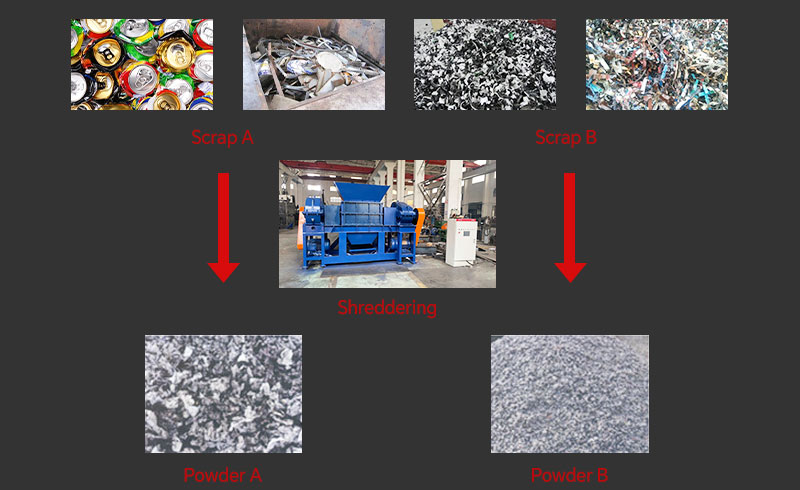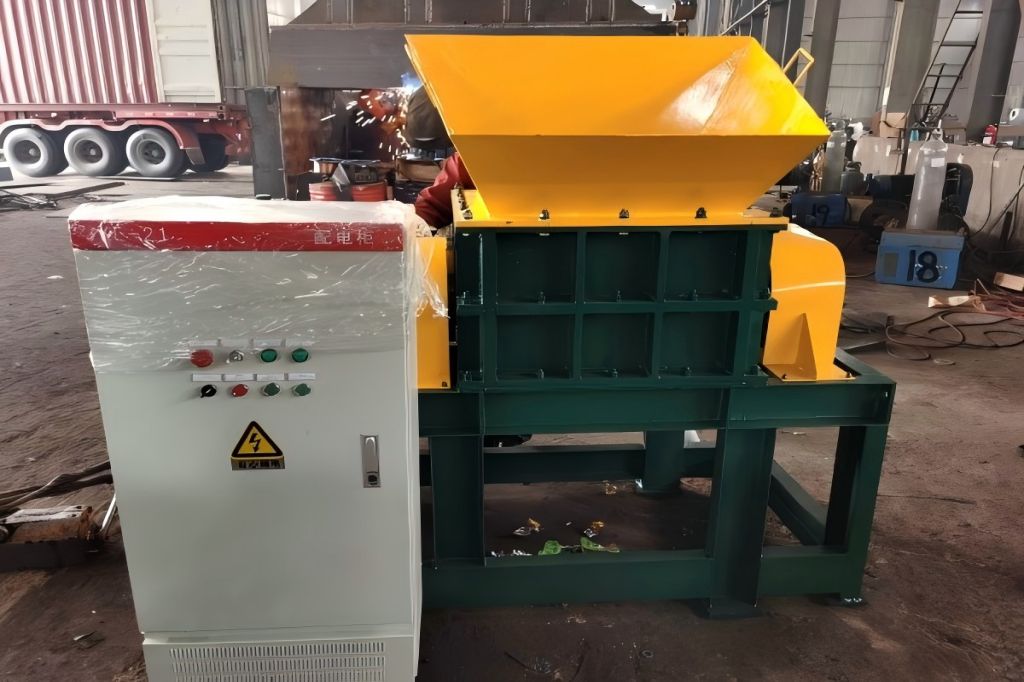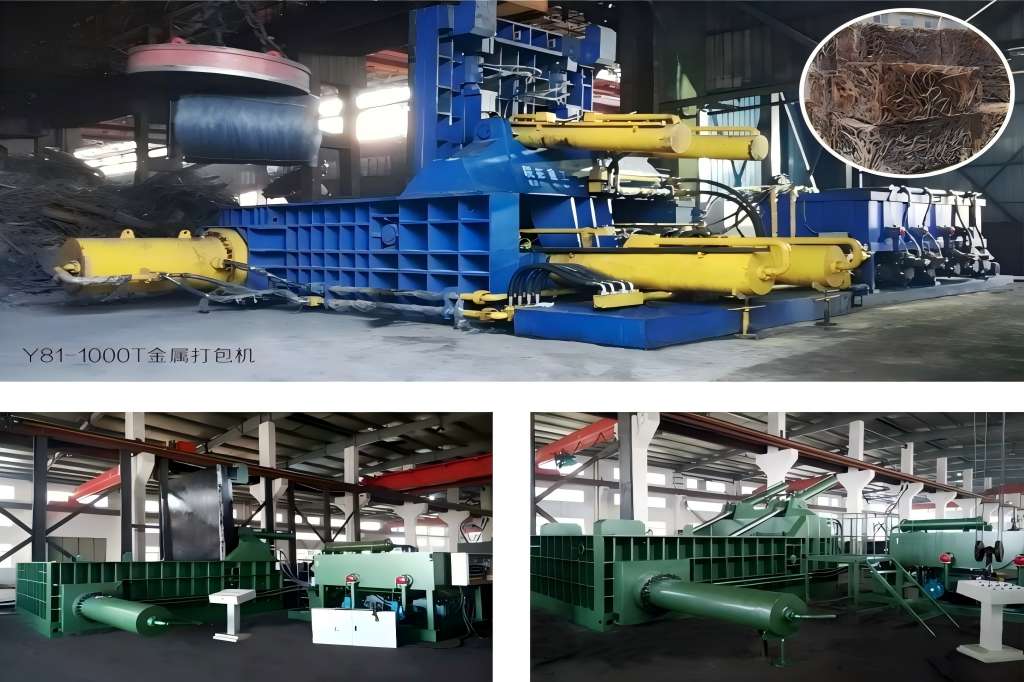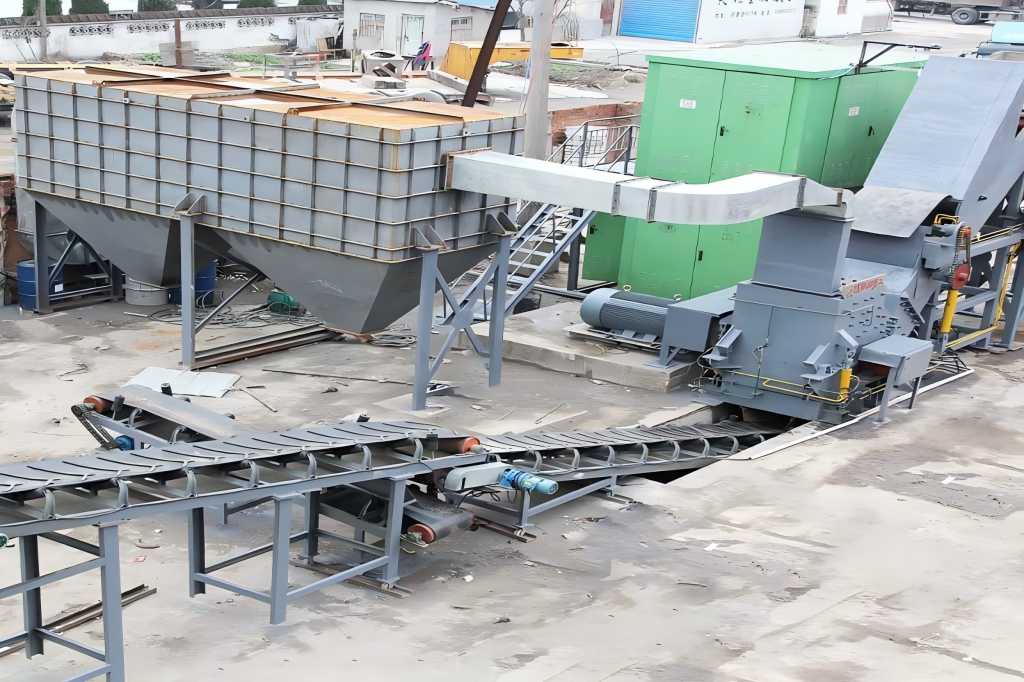In industries dealing with scrap metal, choosing the right equipment for processing is crucial. Metal shredder machines and compactors are two commonly used tools in waste management and recycling, each offering distinct advantages.
This article explores the differences between metal shredders and compactors, helping you make an informed decision based on your specific needs.
What Is a Metal Shredder Machine?
A metal shredder machine is designed to break down large and bulky pieces of metal into smaller, more manageable parts. These machines use high-torque rotating blades to slice through tough materials such as metal car bodies, large appliances, or industrial scrap. Metal shredders are found in many industries, especially in recycling plants, automotive sectors, and metal processing facilities, where reducing the size of metal waste is crucial for further processing or recycling.
The primary purpose of a metal shredder is to create uniform-sized metal pieces that can then be further melted down, separated, or reprocessed. These machines come in different models depending on the specific needs of the operation, such as the size of materials they can handle, the speed of operation, and the final size of the shredded material.

Key Features of Metal Shredders
- High Versatility: Metal shredders can process various types of metals, including both ferrous and non-ferrous materials. This makes them ideal for facilities that deal with mixed scrap metal or large, diverse metal waste.
- Size Reduction: A shredder’s primary function is to make metal bits smaller. This is important when materials need to be melted down, sorted, or further processed. Uniform, smaller pieces that are simpler to handle and transport are produced by the shredding process.
- Efficient Processing: Shredders are designed for high-throughput operations. They are perfect for high-volume activities where speed is crucial since they can process enormous amounts of material at once.
- Energy Consumption: While metal shredders can be energy-intensive due to the mechanical forces involved in shredding, modern models are designed to optimize energy consumption, providing a balance between efficiency and cost-effectiveness.
- Safety Features: Many shredders include safety features such as overload protection, emergency stops, and shielding to ensure that operators are protected from potential hazards.
What Is a Metal Compactor?
A metal compactor, on the other hand, is a machine designed to reduce the volume of metal waste by applying high pressure to compress the material into a denser form. The result is compacted metal, often in the form of blocks or bales, that takes up significantly less space than its original form. Metal compactors are ideal for situations where space efficiency is a top priority.
These machines work by applying intense hydraulic or mechanical force to metal waste, compressing it into compact, manageable units that can be easily stored or transported. They are commonly used in industries where there is a need to reduce the volume of waste for transportation, storage, or disposal purposes.
Key Features of Metal Compactors
- Volume Reduction: A compactor’s main purpose is to reduce the amount of metal waste by up to 80%, which makes them perfect for companies that need to maximize storage space or cut down on transportation expenses.
- Cost Efficiency: For businesses trying to reduce space requirements, compacting metal waste is an affordable solution. Unlike shredders, which require significant energy for size reduction, compactors are generally more energy-efficient.
- Uniform Output: Unlike shredders, which produce varying sizes of pieces, compactors create uniform blocks or bales. This consistency may facilitate the material’s handling, storage, and transportation.
- Simple Operation: In comparison to shredders, metal compactors typically have fewer moving components and a simpler design. This makes them easier to maintain and operate, which is a big advantage for smaller operations or businesses that don’t need complex machinery.
- Space Efficiency: Compactors help firms conserve valuable floor space by breaking down scrap metal into smaller blocks. Particularly helpful in settings with constrained storage space is this.
A Comparison of Metal Shredders and Compactors
Here’s a detailed comparison between metal shredders and compactors based on several important factors:
| Feature | Metal Shredder Machine | Metal Compactor |
| Purpose | Breaks down large metal pieces into smaller sizes | Compresses metal waste into dense blocks or bales |
| Size Reduction | Reduces size, but doesn’t compact | Reduces volume by up to 80% |
| Application | High-volume processing of diverse metal types | Space-saving and transport optimization |
| Energy Consumption | Energy-intensive, but optimized in modern models | More energy-efficient compared to shredders |
| Maintenance | Requires more maintenance due to complex design | Easier to maintain with simpler design |
| Output | Shredded pieces, ideal for further processing | Uniform compact blocks or bales |
| Speed | Fast processing, suitable for high-throughput | Slower processing but efficient for compacting |
| Material Types | Can handle mixed metals, including ferrous and non-ferrous | Best for bulk, homogeneous metal materials |
| Cost Efficiency | Higher operational costs due to maintenance and energy use | More cost-effective with lower operational expenses |
When to Choose a Metal Shredder Machine
A metal shredding machine should be taken into consideration when:
- You Need Size Reduction: Shredders are the ideal option if the objective is to reduce large metal chunks into smaller, more manageable pieces. This is particularly beneficial when preparing materials for recycling, melting, or further refinement.
- Managing Mixed Metals: A shredder provides adaptability if you work with non-ferrous and ferrous metals, among other metal types. Shredders can easily handle different materials, making them ideal for recycling centers or metal recycling plants.
- High-Volume Operations: If your operation requires processing large quantities of metal waste in a short time, a shredder is designed for high throughput, offering faster processing speeds to meet the demands of large-scale operations.
- Further Processing of Material: If your goal is to prepare metal waste for further processing (such as smelting or sorting), shredded metal is easier to handle and work with than compacted waste.
When to Choose a Metal Compactor
A metal compactor is ideal when:
- Space Efficiency is Crucial: If your operation faces space constraints, a compactor can reduce the volume of metal waste significantly, freeing up valuable storage space. Compacting metal into blocks or bales makes it easier to store or stack materials.
- Transport Cost Reduction: By reducing the volume of waste material, compactors improve transport efficiency. Logistics can be optimized and transportation expenses can be decreased by moving more goods in fewer shipments.
- Lower Operating Costs: If minimizing energy consumption and reducing maintenance costs are important, a compactor is a more economical choice compared to a shredder. Its simpler design requires less upkeep, making it a more affordable long-term solution.
- Consistent Output: If you need uniform metal blocks or bales for storage or transportation, a compactor provides a more consistent output than a shredder. This facilitates the effective handling of substantial amounts of metal waste.
In summary, which is best for you?
The choice between a metal shredder machine and a compactor ultimately depends on your operational needs. If you need to reduce large metal materials into smaller pieces for further processing or recycling, a metal shredder is the ideal option. However, if your primary concern is saving space, reducing transportation costs, and improving operational efficiency, a metal compactor may be the better choice.
Both machines have their own set of advantages, and selecting the right one requires a thorough understanding of your specific requirements. Whether you prioritize volume reduction, material size, or storage efficiency, choosing the right equipment will significantly enhance your metal waste processing capabilities and improve overall operational efficiency.



